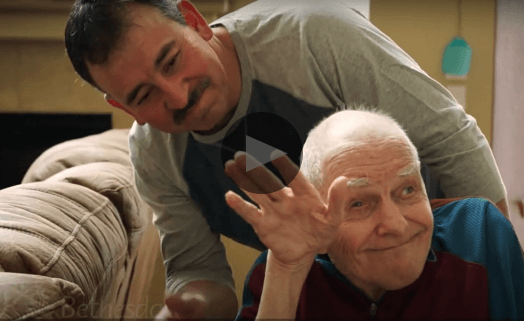Home > Our Work > People with Disabilities > A Disability Network of Changemakers – Expanding Access to Care in Communities
LUTHERAN SERVICES IN ACTION
A Case Study
A Disability Network of Changemakers – Expanding Access to Care in Communities
There are over 7 million persons with intellectual and developmental disabilities in the United States. The publicly funded systems that aim to support their health and opportunity have a legacy of being structured to deny them choices, in where they live, who they live with and which services and supports they can access. For many people with intellectual and development disabilities, this meant being isolated in an institution or placed in a group home that might not fit their interests.
Through the Lutheran Services in America Disability Network (LSA-DN), led by LSA-DN Director of Public Policy and Advocacy Bill Kallestad, member organizations have a professional home for shared advocacy, social sector innovation and workforce support to advance caring communities for people with intellectual and developmental disabilities and their families.
Over the past decade, LSA-DN members have used this platform to advance Host Homes—an innovation in housing plus services that centers dignity, choice, independence and community by connecting people in need, caring neighbors and state systems of care.
The LSA-DN’s leadership has proven and expanded a truly innovative and person-centered model that fulfills a national need for effective and sustainable home and community-based services for people with disabilities.
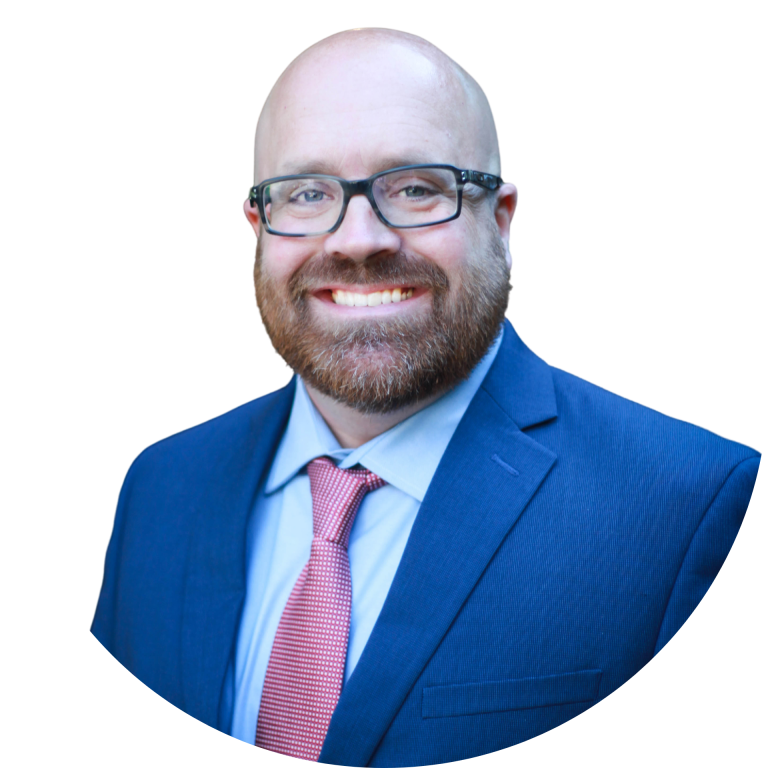
A Leading National Footprint in Host Homes
2,600 persons
served by LSA-DN members
in Host Homes
16 state presence
Alabama, Arizona, Colorado, Georgia, Iowa, Illinois, Kansas, Kentucky, Maine, Minnesota, Missouri, Nebraska, New Hampshire, Pennsylvania, Rhode Island, Virginia
What is a Host Home?
“Host Homes allows people to live their greatest lives, on their terms. To choose their family, home and where they live.”
Sean Zimny
Senior Director of Self-Directed Programs
Accord
Host Homes—also known as Life Sharing—offer people with intellectual and developmental disabilities an opportunity to live in a family-like environment, in a community of their choice, with access to essential services and supports tailored to their needs and their dreams.

Image courtesy of LSS Minnesota
In facilitating a successful Host Home placement, there are 3 essential steps.
Caring neighbors (Host Home “providers”) open their home and their hearts to one or more people with an intellectual and developmental disability, agreeing to have them live with them in a family-like, caring and supportive environment.
Host Home providers and people with intellectual and developmental disabilities are “matched” to ensure a good fit, considering factors such as distance to family and community connections, social interests, the level of support able to be provided and potential stressors in an environment.
After facilitating the match, Lutheran social service agencies ensure access to tailored services and supports and monitor peoples’ experience and outcomes to ensure that the needs of both parties in the match are met and that people in Host Homes thrive in the ways that they want and prioritize.
Learn more about the power of the Host Home model through this AbleLight video about Bill and his Host Home family.
LSA-DN meeting at the Minnesota Statehouse in April 2024
The Lutheran Advantage – a Disability Network of Changemakers
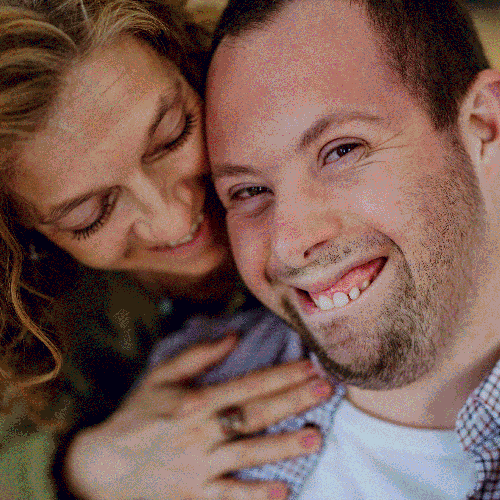
“We would not have Host Homes if it were not for the LSA-DN Network.”
Alissa Dott
Associate Vice President of Community Based Services
LSS Minesota
Founded over 20 years ago, Lutheran Services in America’s Disability Network (LSA-DN) is a nationwide group of 16 Lutheran social ministry providers, faith-based organizations and professionals empowering people living with intellectual and developmental disabilities. Collectively, LSA-DN members serve 250,000 people each year with care and compassion and employ over 20,000 professionals. The LSA-DN is a platform for changemaking through regular virtual meetings, three annual gatherings and shared advocacy.
Host Homes was an innovation that was initially brought to the LSA-DN membership a decade ago through Mosaic—a large, multi-state LSA-DN member that now serves over 1,800 people through Host Homes. The innovation was on trend with the cultural and policy shift happening away from institutions. The network formed a committee that created a spirit of peer exchange that has improved service delivery for DN members and has also provided an opportunity for agencies to initiate host home providers. LSS Minnesota had the opportunity to pay forward their learnings from Mosaic, supporting Lutheran Services in Iowa. Lutheran Services in Iowa supported enCircle in Virginia. And onward.
The growth of the model among LSA-DN members has been enabled by a growing number of state Medicaid and disability agencies embracing the expansion of home and community-based services (known in policy circles as HCBS services). For example, in Colorado, the state approached LSA-DN member AbleLight to offer the service.
Today, LSA-DN members offer Host Homes across 16 states and collectively serve over 2,600 people through the model. The Host Homes Working Group, LSA-DN members provide peer support and national leadership in multiple ways:
“It is a place where we can strengthen our current processes, such as admissions, training and marketing,”
Luke Lemon
Director of Developmental Services
enCircle
“We have different state approaches to Host Homes, but we are all dealing with similar struggles and hurdles, and get to explore different approaches,”
Kathy Trumbore
Director of LifeSharing
KenCrest
“There is new money coming into the space, including private equity and privately funded companies. It is getting competitive and not always for the benefit of the person. We have a huge opportunity to band together and really advocate for people with disabilities.”
Juli Frank
Chief Operating Officer
AbleLight
LSA-DN members are at the forefront of continued expansion of the innovative model to more people. Georgia-based member Inspiritus has been asked to expand their Host Homes footprint into Alabama. Member EnCircle is looking into expansion in West Virgina, building on their long-standing presence in neighboring Virginia. LSS Minnesota, Accord and other partners are leading a coalition to shape regulations around a new Shared Living law in the state, advocating for quality standards for people with disabilities, fair reimbursement and reducing barriers to licensing of Host Homes at the county level.
A PEOPLE-CENTERED APPROACH TO CARE

Photo courtesy of LSA-DN member KenCrest.
“No two care situations are identical. From the ability to address household dynamics to tailor the level of support needed, Host Homes is the most person-centered service around.”
Kathy Trumbore
Director of LifeSharing
KenCrest
LSA-DN members lead a strengths-based and people-centered matching process to find them a good Host Home provider and environment. As Pam Zimmerman, Vice President of Programs with Accord states, “We don’t just focus on the here and now of the match, but what do you want your life to be like in two, three and five years?” EnCircle leaders relayed how they focus on matching as laying the critical foundation for a “long-term placement,” asking detailed quality of life questions and questions about interests, such as whether they like sports, want to live with a pet in a home and whether they like a quiet environment.
A people-centered approach is critical, because people in need of or seeking a Host Home come from all backgrounds and circumstances. For some, their parents are aging and can no longer support them. In other cases, they are seeking to move out of a group home that was not a good fit.
LSA-DN members lead a strengths-based and people-centered matching process to find them a good Host Home provider and environment. As Pam Zimmerman, Vice President of Programs with Accord states, “We don’t just focus on the here and now of the match, but what do you want your life to be like in two, three and five years?” EnCircle leaders relayed how they focus on matching as laying the critical foundation for a “long-term placement,” asking detailed quality of life questions and questions about interests, such as whether they like sports, want to live with a pet in a home and whether they like a quiet environment.
Similarly, LSA-DN members facilitating Host Homes carefully screen and support Host Home providers. “They keep this program moving and without them, we wouldn’t exist,” said Denise Parker, Assistant Director of Disability Services with Inspiritus. Denise relayed how most providers enter the program thinking they are going to make a difference in a person’s life and find themselves transformed, as well. The matching and the experience results in long-lasting matches, said Denise, “Our average provider has been with us better than 10 years!”
One of the keys to helping people thrive in their Host Home is the various tiers of support that can be provided. The services offered can range from nursing to behavioral health, employment services and beyond. Lutheran members have informed and led state policies that provide different levels of Medicaid reimbursement, based on how complex the needs are of a person in a Host Home.
Strong state agency relationships have been critical to making the innovation work for Inspiritus, who have worked with Georgia’s Department of Behavioral Health and Developmental Disabilities to expedite approval of new Host Home providers from “years to months.” They are now working with Alabama to envision a multi-tiered reimbursement system for their new Host Homes initiative. States readily see the results of strong partnership, says Denise with Inspiritus, “We have reduced hospital recidivism rates. The powers that be see the dollars that we are saving the support we are providing.”

Photo courtesy of LSA-DN member Inspiritus.
Finally, Lutheran organizations have recognized the benefits of the model for their own workforce of professionals. Whereas a group home might require a cadre of full-time staff, a single Host Home “case manager” can support many Host Homes. As important, direct service professionals appreciate the model’s flexibility, reductions in stress and the impact they see on people’s lives. “So many jobs in this field can burn you out,” said Luke Lemon, Director of Developmental Services with EnCircle. “This is a job our staff and managers enjoy.”
IMPACT
“The outcome of Host Homes is a better life for the person served.”
Bill Kallestad
LSA-DN Director of Public Policy and Advocacy
Stories of impact relayed by LSA-DN members showcase how people’s lives are transformed by Host Homes:
- A young adult was referred from a juvenile home to a Host Home, where they thrived, learned how to take their own medication and now live independently.
- An adult whose life goal of an annual trip to Disney was able to be fulfilled by their Host Home provider, year-after-year.
- A woman who became a Host Home provider to give back to her community, and when she passed, her daughter continued her legacy of service to community.
- The direct service professional who retired from their career but was able to stay connected and earn income by becoming a Host Home provider.
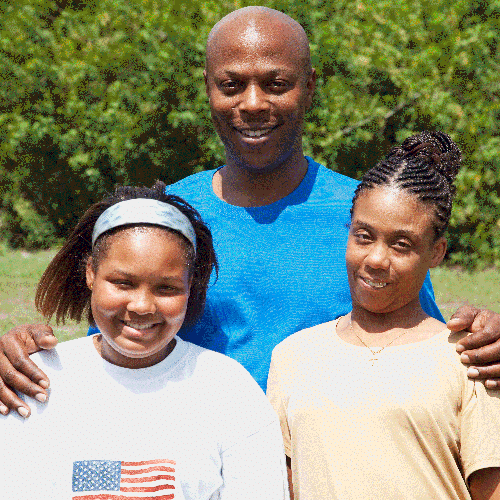

Data collected by members points to the kinds of outcomes for people with intellectual and developmental disabilities that Host Homes create:
- Longer-term and more stable placements compared to other options, leading to higher life satisfaction.
- Reductions in hospitalization, improving physical and mental health and saving health care costs.
- Increases in protective factors and behaviors, such as stronger social and community connections and medication management, improving a wide range of outcomes.
GOALS AND CHOICES
PERSON SUPPORTED GOALS:
of people supported choose goals that are important to them.
of guardians and case managers are satisfied with the supports the person receives to accomplish goals.
PERSON SUPPORTED CHOICES:
of people supported feel supported by their Host Home provider to celebrate their family and personal tradittions.
of people supported decided how to spend their money.
Data courtesy of LSS Minnesota.
A VIEW FROM THE C-SUITE:
RITA WIERSMA, CEO OF ACCORD
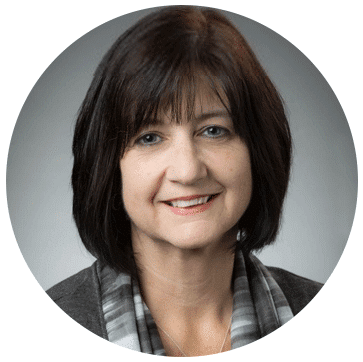
When Rita Wiersma joined Minnesota-based Accord as their new CEO in 2015, she faced a critical strategic decision: “We had 23 group homes, and we needed to make a choice to invest more in them so we could focus on quality or pivot away from it.”
Drawing on connections with other LSA-DN members and Accord’s own rich history of innovation and commitment to listening to what people with intellectual and developmental disabilities want, she made the decision to pivot away from residential service and advance Life Sharing (the name for Host Homes in Minnesota). As Rita notes, “When people are struggling to get drop by services and their health is declining, there should be an option other than a group home or a nursing home.”
The LSA-DN is now a resource for Rita and the Accord team, as they continue to implement this decision. “There is something about LSA and the DN network that is this niche of socially minded leaders that really keep focused on, ‘How do we keep this moving forward?’ and by the way, ‘How do I support you to do that, even though you are in another state?’ It feeds the soul.”

The roots of Rita’s commitment to the dignity of the Host Homes/Life Sharing model are also deeply rooted in her lived experience as the parent of an adult daughter with intellectual and developmental disabilities. “I have a daughter who is 40 years old and lived in a group home for six years and hated it. We struggled to find a provider who was willing to take a risk, because providers know how to do residential care. She is a success story only because her family has pushed so much.”
For Rita, Host Homes/Life Sharing is an effective response to a host of public policy and systems-wide challenges simply by offering the “opportunity to capitalize on a fellow community neighbor, a family member or a friend.”
Together with other LSA-DN members in Minnesota and nationally, Rita and her colleagues continue to be leading advocates for changes that would expand access to Host Homes/Life Sharing for many more people, including fairer reimbursement and easier provider licensing.
For colleagues or policymakers on the fence about the value of Host Homes/Life Sharing, she offers her personal testimony, “When it is time to look for what our daughter needs as she ages, I would be looking for a Host Home or Life Sharing opportunity for her. That is the greatest compliment that I can offer.”
Accord serves 3,400 people with intellectual and developmental disabilities each year across 44 counties in Minnesota. With a $22 million annual budget, they offer a wide range of programming to “empower individuals with disabilities and mental health challenges, providing them with holistic support and driving positive outcomes in their lives.” To learn more about LSA-DN member Accord, please visit: Accord.org
Taking the Work Forward
“There has to be an awakening and an understanding among policymakers that would open the door to many thousands more people accessing Host Homes.”
Bill Kallestad
LSA-DN Director of Public Policy and Advocacy
Despite great strides in expanding access to Host Homes, many thousands of people with intellectual and developmental disabilities lack access to a choice of home and supports that meet their needs and interests.

Public policy can be a critical support to expanding access. At the federal level, the LSA-DN advocates on Capitol Hill to advance a policy agenda that would: 1) strengthen the direct care workforce and, 2) expand access to home and community-based services.
State and local policy changes are also needed. One of the major local barriers is the licensing process for new Host Homes, which when situated at the county-level (e.g. in Minnesota), often results in a slow and bureaucratic process misaligned with bold state policy goals for home and community-based services.

On the positive side, one of the policy enablers is provider-informed guidance from state agencies about the purpose and structure of Host Homes (see this recent example from Iowa’s Department of Health and Human Services).
As members of the LSA-DN noted in conversations, there is a deep intersection between their shared work on practice and advancing policy. “It [the practice work] gives credibility to the service model,” said Jen Zajicek, Vice President of Operational Excellence with Mosaic and makes expansion more likely in other states.
KEY INSIGHTS FOR PEERS
For peers and states considering Host Homes as an innovation, LSA-DN members have advice.
Cultivate organizational support
- “Anytime you are starting a new program, it is difficult and time intensive. It is so important to have organizational and top-down support.” – Accord staff
Focus on matching
- “It is a much more person-centered service. When you find a good match, it is stable, and things go well.” – Holly Rhodenhizer, Vice President of Program Operations, enCircle
Quality is more important than scale
- “It is not always great to be huge, it is great to be good at what you do. Don’t focus on the number, focus on the quality.” – Denise Parker, Assistant Director of Disability Services, Inspiritus
Be “fierce.”
- “We have two people who have really cleared the path for others to do the work. We have such fierce advocates on our team.” – Regional Host Homes Director of Quality and Enrollment, Angie Ealy, LSS Minnesota
JOIN LSA'S DISABILITY NETWORK
The Lutheran Services in America Disability Network (LSA-DN) harnesses the collective power and wisdom of its nationwide group of Lutheran social ministry organizations to amplify our voice through advocacy and champion services and supports that enable individuals with intellectual and developmental disabilities to realize their dreams, achieve their potential and lead their best lives. We’re committed to working with individuals with disabilities to advance policies that empower all people to live and work in the community of their choice with dignity and independence.
ACKNOWLEDGMENTS
Lutheran Services in America is grateful to the many members of the LSA-DN that participated in interviews, group conversations and shared data and stories to create this case study. A special thank you to Accord CEO Rita Wiersma for sharing a CEO’s perspective and her lived experience.
